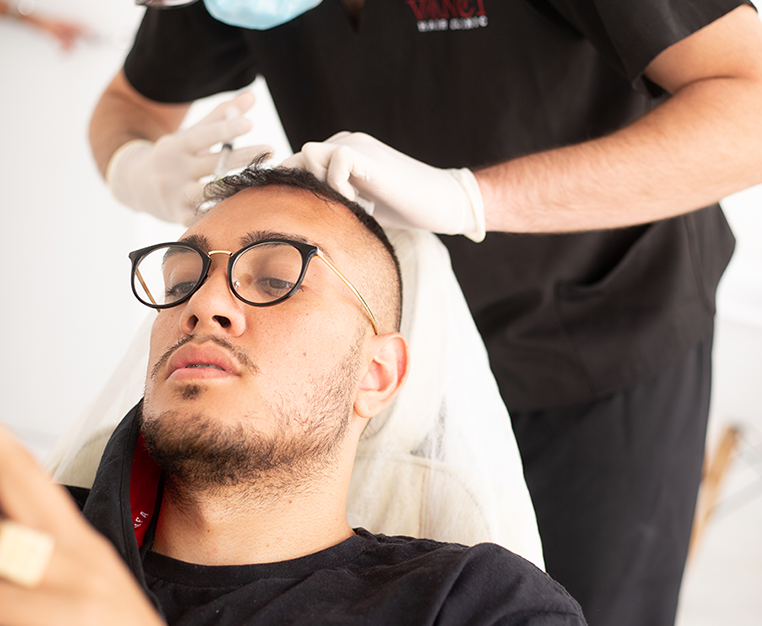Normally, a person loses around 100 strands of hair on a daily basis. Even though these numbers might sound frightening to you, they’re totally normal. However, what’s more concerning is the postpartum period in women. Technically known as telogen effluvium, the hair loss process that follows pregnancy can cause women to lose as much as 300 strands of hair within a day.
According to scientists, this is a natural process that shouldn’t alarm you. Postpartum hair loss occurs due to a nonregulation in hormone levels (primarily estrogen) when the body starts recovering from the pregnancy phase.
The Beginning of Postpartum Hair Loss
Postpartum hair loss may be noticed two to four months after giving birth and can last for several months. Women who have long hair and hair that grows fast during the pregnancy period also have a greater possibility of experiencing a more intense hair loss.
However, scientists state that the hair loss amounts aren’t always proportional to the hair growth during pregnancy. During the pregnancy months, an increased estrogen level extends the hair growing process. The amount of hair in the resting stage is lower and the number of hair strands falling out is less than normal, giving your hair a denser appearance.
After pregnancy, women experience a reduction in estrogen levels, and the number of hair follicles passing into the resting stage increases. This hair will fall three to five months later. So, within five months, don’t be surprised when you find more hair falling in the shower or stuck on your brush.
This condition is considered to be temporary, and the hair growth cycle returns to normal after one year. If these symptoms persist beyond 12 months, it’s advisable to consult with a doctor for professional advice.
How to Treat Postpartum Hair Loss Yourself
Preventing hair loss is not yet possible. Women’s hormones must regulate themselves after childbirth and this is a side effect of the process. Changes in your diet and other tips can assist in softening the hair loss effect. Grouped below, we have gathered five pieces of advice that need no medical assistance and are quite straightforward.
-
Maintain a Healthy Diet
Selecting the food that enters your body is essential for regulating the hormonal system and maintaining a healthy condition. Moreover, a carefully planned diet containing the needed nutrients helps the body recover faster and slows the progress of postpartum hair loss. Generally, a proper diet should be balanced and rich in nutrients and vitamins taken through fresh fruits, whole grains, vegetables and fish. To process all of them properly, keep yourself hydrated.
-
Lower Your Stress Level
Stress affects the hair follicles and stops them from producing new hair strands, lowering the hair density and making the hair fall more easily. Reducing your stress levels helps to balance the activity of the hormone that affects hair follicles. Add practical relaxation techniques to your daily routine, such as yoga, casual walks, meditation, controlled breathing sessions and spending time with friends to keep your stress levels low.
-
Use a Volumising Shampoo
Volumising shampoos help prevent hair roots from falling flat. They hydrate and moisturise the skin and the hair roots for improved elasticity and fast repair of the hair shafts’ cuticles. Contemporary shampoos and conditioners are made of solutions that complement the visibility lift and keep hair hydrated without weighing it down. When applying it, condition only the ends of your hair to prevent it from being weighed down by conditioner.
-
Avoid Hair Damage from Chemicals or Heat
After pregnancy, the body goes through a recovery process. During this period, the hair is weak and fragile, and exposure to heat from curling irons or dryers and hair salon chemicals could damage it. Instead of applying harsh treatments and chemicals to your hair, focus on useful shampoos and conditioners and reduce your use of heat-hair styling tools.
-
Take Plenty of Vitamins
Vitamins play an important role in alleviating postpartum hair loss. Search for Vitamins D, B, C, A, B12, zinc and iron, as a lack of these elements can prolong postpartum hair loss. These minerals stimulate the growth of red blood cells which transport oxygen into all the body’s cells.
Concluding Thoughts
Postpartum hair loss makes some women feel uncomfortable with their hair, leading to the use of treatments or conditioners. There’s nothing wrong with trying different methods until you find what helps your hair. However, you should be careful and, if unsure, ask for an expert’s advice.
Vinci Hair Clinic offers a free consultation to all our clients, so if you’re looking for a specific treatment or procedure or simply seeking advice, a Vinci expert can help. Get in touch and book your appointment today!



